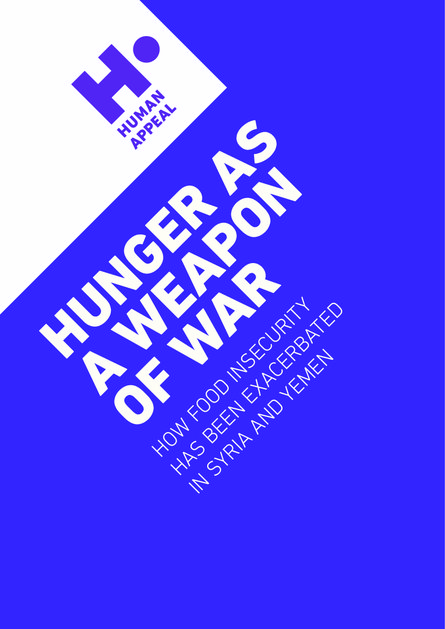
The conflicts in Syria and Yemen are two of the largest humanitarian crises that have occurred within the last decade. Civilians are paying the highest price in these conflicts, especially those who are most vulnerable – women, children, the elderly, and those with disabilities. Due to the insecurity of the ongoing political crises, both countries have seen their populations plunged into deeper stages of impoverishment and vulnerability. Stretched to their limits, the coping capacities and resilience of millions is beginning to decrease and people have begun to resort to more negative coping strategies, such as selling their livelihoods, assets and begging.
One of the cross-cutting issues which exacerbates susceptibility to other problems is the issue of nutrition and food security. Many do not know where their next meal will come from. The food that is available is often inadequate to meet their nutritional needs, and mostly unaffordable as prices are skyrocketing due to the scarcity. Markets have become almost non-existent in many parts of Syria and Yemen, and agricultural and livestock productions have stalled as people do not have access to the agricultural inputs (seeds, fertilisers) or tools needed. Many agricultural assets have been destroyed and there has been a severe decrease in both crop and livestock production due to diseases, lack of fodder and vaccinations. This decline in agricultural output and loss of livestock is a contributing factor to malnourishment and poverty.
